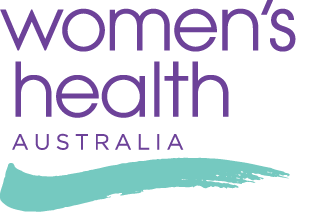
Further education – is it associated with improved physical and mental health?
This study offers insights into how obtaining further education at different stages of the adult life course influences women’s physical and mental health. While declines in physical and mental health in women as they age can be moderated by further educational attainment, life stage is important. Women who delay further education until they are aged between 45 and 64 years can improve or maintain their physical functioning but may have missed the critical time to minimise depressive symptoms.
What is this research about?
Lower levels of education are clearly linked to poorer physical and mental health in women. It is also well known that as women age their physical functioning steadily declines while their mental health generally peaks in later life before it starts to decline. Previous research has shown that education achieved in the first two decades of life appears to have a protective effect against worsening age-related changes in physical and mental health. The aim of this study was to determine whether obtaining further education as a young adult or mid-aged woman influences physical and mental health.
What did the researchers do?
More than 28,000 women (born 1973-78 and 1946-51) in the Australian Longitudinal Study on Women’s Health were surveyed approximately every three years between 1996 and 2012. In 1996, the women’s education levels were categorised as High (Certificate, Diploma, Degree or Higher Degree), Middle (completed Year 11/12, or with Trade/Apprenticeship), or Low (less than Year 10 education). The researchers then followed the women over a 14-16 year time period to see who obtained further education (upwards). They then examined whether there was an association between obtaining further education and women’s physical functioning and depressive symptoms over time.
What did the research find?
Obtaining further education up to age 39 for younger women or at any time between the ages of 45 and 64 years for midaged women was associated with optimal physical functioning. That is, this high level of education did not have to be obtained earlier for it to have an impact. This result was found only for women who upgraded from a middle level education to a high level. Women in both age cohorts who obtained further education from a low level showed better physical functioning than those who remained at a low level but poorer physical functioning compared with those with a stable middle or high education.
There appeared to be a similar protective effect of obtaining further education on depressive symptoms for younger women. For the younger women, further education to a high level that was achieved up to the age of 39 was associated with less depressive symptoms. For mid-aged women, even if they obtained the highest further education by the age of 64 years, they remained with more depressive symptoms than women who had obtained their highest education before the age of 45.
How can you use this research?
Women who delay further education until they are aged between their forties and sixties can improve or maintain their physical functioning but may have missed the critical time to minimise depressive symptoms. Public health policy should focus on encouraging women to upgrade their educational qualifications earlier in life in order to potentially offset the negative associations between lower education levels and poorer mental health.
Citation:
Tooth L, Mishra GD (2015) Does further education in adulthood improve physical and mental health among Australian women? A longitudinal study. PLoS ONE 10(10):e0140334. Doi:10.1371/journal.pone.0140334

